|
2020 was a rough year, wasn't it?
So many homeschool groups have been started while so many others have folded due to the pandemic. It has been hard! While we may not update the blog regularly, rest assured, we're still kicking and doing our best to keep going, even if we're conducting classes virtually. Feel free to drop us a line!
0 Comments
By Marisa Pullan  Courtesy of Forkey Fhotos Courtesy of Forkey Fhotos As 2018 comes to a close, we all begin to reflect on what we have done and what we want to do better at the start of the New Year. Here at the Hutto Homeschool Co-op, we want to look back on the things that we've done this past year, too, and thank all of the parents and adults that continue to give of themselves for everything that they do. We continue to have classes that will make kids and adults happy, or at least we will try our best! Back in the spring, we had some amazing parents step forth and contribute things like a class on human anatomy for the elementary crowd, ASL classes, and of course, our regularly scheduled shooting sports and archery classes. Perhaps our biggest accomplishment of the year was the First Annual Middle School Masquerade Ball. The kids showed up, dressed to impress, and everyone wore masks. You could even say the night was magical. We want to give a huge THANK YOU to those that made that night possible. Jim Powell over at Powell Party made the music happen and gave kids the chance to sing their hearts out. Jennifer Forkey with Forkey Fhotos provided our families with photos of the event. You could just see how much fun everyone had that night. We can't wait to do it again! Then, this fall, we had classes for teens for the very first time! The request was there and so we had some amazing adults fill these teaching roles to give the kids fun enrichment opportunities. There is a real need for social learning atmospheres for teens, and we're working to make that a reality. We can't wait until the Spring to see what new things are happening for and in our homeschool community. In the mean time, our friends over at Education.com invite you all to cozy up by the fire this winter with this fun word search. For more learning activities and resources, be sure to check them out!
By Marisa Pullan  People the world over question whether or not homeschooling is the right thing to do when it comes to educating their children. What's the right answer? Ah. There is no right answer because each time a child is homeschooled, it is a result of a personal choice based in any number of possibilities. Whatever the reason, there is an incredible variety to homeschooling. Here are just a few stories from homeschoolers from across the country. Faces of Homeschooling According to an article published over at ABC news, "people are now actually homeschooling for academic reasons, and that wasn't true before," as per Dr. Murphy of Vanderbilt University. It's overwhelmingly true. You have eclectic homeschoolers like the Dillon family over in North Carolina, that pull a little of this and a little of that from all over the place. While different, they are successful in their own right. Then you have the Hyson family out of Massachusetts. They have a different approach, one that is more about self-direction on behalf of their kids. Their focus is on encouraging internal motivation as their children learn and grow at their own pace. Last, but not least, you have the White family out of Ohio. They are what some would consider unschoolers. As a single-parent family, their approach is a team-effort where the parent and child work together in planning and workings towards their individual bests in education. Homeschooling is Growing As we continue forward in our own individual homeschooling journeys, we can see even locally that homeschooling has grown far beyond the religious reasons that were once at the core. In our own family, we wanted something greater for our children. We aren't necessarily in a bad school district. In fact, many people in our area rave about the teachers, but it's still not what we wanted. Still, we wanted the flexibility that comes with homeschooling. We also wanted to be able to allow our children the opportunity to explore topics that interested them without the time constraints of public schooling. Eight years later and we're still going strong! Many of the families that are a part of the co-op have similar stories, and some have very different stories. The point is that as homeschooling continues to grow, everyone has their own set of unique reasons behind their choice. Opportunities Abound Homeschoolers are becoming far more mainstream than they were looking back 30-40 years ago. Because of this, there are so many opportunities available for homeschoolers all over the place. Earlier this month, the Times Gazette ran an article about the Fly Arts Center in Bedford County, Tennessee. They hosted a Home School Youth Art Exhibit reception to provide homeschool artists a place to put their work on display until April 28, 2018 in celebration of Youth Art Month. Events like this are not uncommon and are in place to give homeschoolers the chance to participate in activities that will enrich their lives. If you tap into your local communities, you'll find things like this almost everywhere. There is even a mantra among homeschoolers, understood although unofficial, "if you see a need, don't be afraid to fill it" because so many others will jump on board with you. Together, we all make up the different sides of homeschooling. Together, as a homeschooling community, we can do great things, not only for our children, but other children as well. That's all for this time around. Until next time, happy homeschooling! By Marisa Pullan
By Marisa Pullan  The choices in curriculum get largely overwhelming very, very quickly. Here's a quick breakdown of some of the choices that are available to you. They have been organized by primarily online, text-based, or multi-media options. It has also been noted if they are secular (S) or Christian-based (C). Each delivers from a different philosophical standpoint. Additionally, some are free and some include fees that range from free to quite substantial. Many are complete curricula, while some may focus on a single subject, or are purely supplemental. Online Options Acellus (S) - $$$$, covers pre-k through high school, complete curricula Easy Peasy Homeschool (C) - Free - covers pre-k through high school, complete curricula Monarch (C) - $$$$ - grades 3-12, complete curricula Alpha Omega Academy (C) - $$$$ - k-12, complete curricula Outschool (S) - $$$, variety of classes, some enrichment and some core academics, a la carte Discovery K12 (S) - Free - covers k-12, complete curricula Time 4 Learning (S) - $$ - pre-k through high school, can be complete or supplemental Pearson Homeschool (S) - $$$ - pre-k through high school, can be complete or single subject Penn Foster High School (S) - $$$ - high school only, complete curricula Clickschooling (S) - Free - more for supplemental use or extra practice for various concepts Academic Earth (S) - Free - college-level courses and lectures from top universities Text-based Options Beast Academy (S) - $$ - math only, for grades 2-5 Saxon - (S) - $$/$$$ - math and phonics, for grades 1-12 Shurley English - (S) - $/$$ - English only, for grades 1-8 Singapore Math (S) - $ - math only, for grades k-8 Moving Beyond the Page (S) - $$$$ - pre-k through high school, can be complete curricula Evan-Moor - (S) - $/$$$$ - pre-k through 8, can be complete curricula, single subject, or practice Story of the World (C) - $$$ - some claim this is secular, grades 1-5, history only Notgrass Publishers (C) - $$$$ - for grades 5-12, history only Horizons by AOP - (C) - $$$ - pre-k through 12, can be complete or single subject Rod & Staff - (C) - $/$$ - pre-k through 10, can be complete or single subject Apologia - (C) - $$/$$$$ - pre-k through high school, primarily science and language arts Multi-media Options Switched On Schoolhouse (C) - $$$$ - for grades 3-12, complete curricula Teaching Textbooks (S) - $$/$$$ - for grades 3-12, math only Great Courses Plus - (S) - $$ - college level courses, best for high school or adv middle school A BEka (C) - $$$ - for pre-k through 12, complete curricula BJU Press (C) - $$/$$$$ - for pre-k through 12, can be complete curricula or single subject Please keep in mind that these are actually only a few of the various curriculum options that are available to you and your children. If you can think of one that isn't on this list, please feel free to add it in the comments on this blog. We'd love feedback on others! By Marisa Pullan This blog is specific to the Hutto Homeschool Co-op, but anyone can use our framework if it helps!
The way the co-op runs... Our co-op runs for approximately 8 weeks in the fall and 8 weeks in the spring. We try and take field trips throughout the school year, too, on weeks that we aren't actively in class. The purpose is to keep the kids together and give them the opportunity to hang out with their friends. For the fall, we start some time in October and go through December, taking time off for Thanksgiving. On the last day, we usually do something a little special whether it is a parent day to invite parents to see what the kids have done throughout the semester and/or a party for the kids, usually a Christmas party. In the spring, we start some time in February or early March and typically run through the end of April. The spring semester works similar to the fall, complete with a showcase of sorts at the end or an end of the semester party. About Classes and Teachers Classes are on Wednesday afternoons at Hutto Discovery United Methodist Church in their Discovery Center and start at noon and goes until 3pm. Parents are not required to stay so long as we have enough adults on-site to assist. This isn't typically an issue, but parents are made known up front that they may be asked to help out on a given day due to various reasons. It's actually a question on the registration form. If a parent can't help due to other circumstances, that is perfectly fine, so long as we know up front. As far as enrollment, children are not required to take all classes. If there is only one that they would like to participate in for the semester, that is perfectly okay, too! Class content varies because it is whatever the parent or adult wants to teach, so it is completely normal to not have any classes repeat over the course of a school year. In fact, I don't think we've had more than a couple of different topics repeat although the classes have never actually repeated! Teachers are typically parents of children within the homeschool co-op or adults with teaching experience that simply want to make a difference because they love to teach. If someone wants to teach but doesn't know what to teach, we have a catalog of classes to choose from that cover a myriad of topics. Perks to teachers include that we do our best to provide for their insurance fees as well as insurance fees up to three children. Teachers are also guaranteed slots within the co-op for their children. Dedicated assistants receive similar perks, but the limit is an adult and up to 2 children covered by the co-op. Tuition & Fees So this is going to vary, but this will give you an idea of what to expect. Classes typically range from $10-$45 in supply fees depending on the class and materials associated with it. As an example, a dissection studies class is going to have a higher supply fee than maybe a Spanish class. Each teacher is responsible for establishing their own class supply fee based on their course. We operate at cost as best we can because we understand that co-ops and other opportunities can be expensive, and we want to make the experience available to as many children as possible. The only other fee that parents are responsible for are insurance fees because as per HDUMC policy, we need to have insurance coverage that is specific to the co-op. This comes out to $14 per child participant for per semester. Keep in mind that the insurance fee is subject to change depending on what the insurance company charges us for coverage. Future Goals One day, we hope to incorporate into a 501.3(c) to be able to request sponsors and donations so that we can cover insurance costs or at least the majority of insurance costs to be able to reduce costs to parents. If you know someone or are someone that has the time to dedicate themselves to making this happen, please let us know! If you have any other questions, please feel free to reach out and let us know! By Marisa Pullan  We all know that home education is entirely, 100% legal, right? Even still, as parents trying to make sure we do the best for our children, we want to make sure we do it correctly so we don't have issues like truancy officers showing up at our house during a Math lesson. But where do you start? The first step is going to be getting to know the law for where you are. Here in Texas, requirements are minimal and notifications don't exist beyond the withdrawal form you submit to your child's current school. If your child has never been in the public school system, no notifications are necessary. To legally home school in Texas, here are the state-mandated requirements: 1. Instruction must be bona fide (i.e. not a sham) 2. Curriculum must be in visual form (e.g. books, workbooks, videos, etc) 3. Curriculum must include reading, spelling, grammar, math, and good citizenship. If you desire to do so, you may also allow other parents or tutors to teach your children so long as they are meeting the state-mandated minimums. Yep, that's it. Seriously. What about curriculum and attendance? This is an important distinction between home education and public schools. "Texas home schools are private schools for the purpose of compulsory attendance. As such, home schools are not regulated, do not require teacher certification or third-party curriculum approval, and they are exempt from compulsory attendance laws," according to the Texas Home School Coalition. At the same time, and this is equally important, public school officials can in fact make what is considered a "reasonable inquiry" to know for sure that your child is in a private school (a.k.a. home school). This comes up more often, though, if your child has been enrolled in a public school previously. Okay, great, now how do you withdraw from public school? The process is pretty simple, but be sure that when you withdraw your child or children, you get a copy of the form that is turned into the school. Every school has a withdrawal form. You fill it out with your name, your child(ren)'s name(s) and where they are transferring. In this instance, instead of transferring to a different public school, you would write in that you are choosing to home school. Sign it and you're done. Here are some other options you can choose to use, too: Via email: Send a withdrawal email to the necessary officials: principal, counselor, and person in charge attendance. Essentially, that's it, BUT the school may ask you to come in and sign something. Truly, it is your choice to do it at that point, but at the same time, it's not terribly difficult to run up to the school for a few minutes and sign the paperwork. It's more for the school to cover themselves than anything else. Keep in mind that signing the paperwork at the school can keep everyone happy and make sure you don't have truancy officers showing up on your doorstep. Via letter: Send a withdrawal letter explaining your intentions. The letter needs to reach the principal, registrar, and counselor at the very least. Mail the letter via certified mail so you can be sure to get a return receipt. You may still hear from the school about their form, but the letter should be enough to keep them from contacting you. Something else to remember, before you withdraw your child(ren) from public school, make sure there are NO OUTSTANDING BALANCES that are owed on behalf of your child(ren). That can cause problems down the road. Outstanding balances include lunch bills, library fees, tech fees, required text replacement if a book was lost, etc. All in all, withdrawal is not difficult as long as you follow your p's and q's and make sure to dot your i's and cross your t's. If you need help, there are organizations like THSC that can offer assistance, too. Please keep in mind that this is NOT legal advice and that the Co-op in no way, shape, or form condones or objects to personal choices as to approach organizations like THSC for assistance. If you need legal advice, you are encouraged to reach out to an organization equipped to handle legal situations.
By Marisa Pullan One of the biggest questions that people ask are what are the Texas state requirements to homeschool. Let's see if we can parse down the information to cover the core basics so you know what you're facing as you make the choice to homeschool in Texas.
In order to homeschool legally in the state of Texas, you have to follow these three requirements: 1. Instruction must be bona-fide (not a sham) 2. Curriculum must be in visual form (books, workbooks, videos, etc) 3. Curriculum must include FIVE basic subjects: reading, spelling, grammar, mathematics, and good citizenship. That's pretty much it. Let's expand on what all of these mean a little bit more to help you wrap your head around what it all translates to you. Bona-fide Instruction Really, what this means is that you have to have some way to prove that you're homeschooling if it ever comes into question. Chances are that it won't because Texas is generally hands-off when it comes to homeschooling, but it's good to understand this if it ever happens. This can be as simple as a letter from you saying that you are homeschooling the required subject matter or a list of curriculum that you're using. Visual Curriculum You may consider keeping track of curriculum choices that you make along the way. Visual curriculum does not mean that it has to be something that is ONLY visual because quite simply, that would be very limiting. Instead, it makes more sense that "visual curriculum" simply means that it has to be something tangible that can be seen and handled. Even if you are an unschooler with kids choosing to do nature exploration, as an example, if you can provide images and examples of what your children have learned, then it would count as visual curriculum because it is tangible. The Five Basic Subjects Reading, spelling, grammar, mathematics, and good citizenship are the core homeschooling requirements in Texas. Reading is relatively self-explanatory - just make sure your child reads. This could be reading books, reading subtitles, reading pamphlets, etc. If your child has a reading disability like dyslexia, then make sure that you are addressing the disability and you should be covered. Spelling works the same way, as do grammar and mathematics. Good citizenship is sometimes a little harder to pin down. Think about this like social studies at an elementary level or government and ethics in a middle school or high school environment. Much of this comes naturally, too, as you teach your child how to interact appropriately with the community and how the community works together. Visits to the fire station or police department can help with this concept. If you're close to the state capitol, that's another great visit to help fulfill the "good citizenship" requirement. If you want more information, please feel free to click here to get a more in-depth explanation of the Texas state requirements for homeschooling. Next time, we'll talk more about withdrawing your child from the public school system, example withdrawal letters, and more. Please stay tuned! DISCLAIMER:This information is NOT to be considered legal advice. If you have questions about legality, please contact a lawyer that is well-versed in the necessary information. You may contact the Texas Home School Coalition (THSC) for more information. THSC is a political group which lobbies on behalf of homeschoolers; however, not all homeschoolers agree with THSC, and THSC does not represent all homeschoolers. By Marisa Pullan  So what does a day in the life of a homeschooler look like? That's actually a pretty loaded question because the answer is entirely relative to the homeschooler you're talking about. A better question might be "what opportunities are available for my homeschooler so I can build out our days?" Your child might be an athletic child and would thrive in sports. With that, you can check out homeschool organizations like the Austin Royals or the Wilco Falcons if you happen to live in or around Austin. The Royals and Falcons both also have quite the fan following! If your child tends to flow more towards the arts, then you could check out homeschool-friendly classes at places like Cordovan Art School or the Art Academy of Austin, just as a couple of options. There are also musical organizations such as the Christian Youth Band of Austin and CAPA Austin for choir. Let's say science makes your kid's world go round. If that's the case, there are a few science-oriented opportunities in the area to include Howdy Bots, AAH-Science, NASA, and the Austin Homeschool Science League. These teams are great if your child loves the sciences. Eclectic options might be more your style, so look at the assortment of co-ops, one-off classes, and other fun learning opportunities that are out there. There are SO many depending on what you're looking for with your child. Your day may very well include a random co-op and an art class among other things! To answer your question of what does a day in the life of a homeschooler look like, it depends on what your child enjoys and what you want for your child as well. If you happen to be a more academic-focused homeschooler, then your days will reflect that. If you desire to be more relaxed about homeschooling, then your days will probably involve lots of freedom for your children. Once you add in the extras, that's what YOUR day will look like. There's a good chance that no one else's day will look like it, and that's okay. Click here for a list of available opportunities in the greater Austin area. This list will change periodically, so please check back often. Also, if you have any other opportunities that you would like to have listed or included, please leave a comment so we can be sure to add you to the list. By Marisa Pullan  We all want what is best for our children, and homeschoolers are notorious for over-scheduling in fear of having their children miss out on something or some new experience. At the same time, as parents, we feel this insane pressure to "do it all." It can take a major toll, not only on us, but on the relationships we have with our kids, the relationships they have with us, AND the relationships they have with their peers. But how can you tell if you are over-scheduling? When you start double booking your days ALL the time, you are probably over-scheduled. When you start saying that your life has gotten too busy taking your kids here, there, and everywhere, you're probably over-scheduling. Sit back and reflect on what you're doing and think about why you're doing it. Are you doing it because you want to do it? Are you doing it because your kids want to do it? Are you doing it because of this insane pressure that seems to exist on homeschoolers to produce genius kids? (That's a topic for a whole different day!) Do you like who you become or who your kids become when having a super-filled schedule? What actually makes you ALL happy? But I want my kids to do all of the things! Almost all homeschool parents fall victim to this thought process at one point or another. Usually, it is because you want your child to be exposed to new ideas, to have friends, and to have opportunities to be social. Exposing to new ideas is fun and engaging for your children, but consider whether or not you're doing it for them or doing it for you because you don't want to feel like they're missing out. If your kids are happy doing one or maybe two things a week with those groups of kids, then you may want to scale back all of the outings. If you find some activity your child loves, then commit to it without feeling guilty because you're missing something you may want to do elsewhere. Chances are, your kid doesn't care because he or she is happy. But my kids need friends! Absolutely, they need friends! All kids enjoy the time they have to play with other kids and get to know each other. Here's the kicker though - real and genuine friendships take time to build. Consider whether or not you want your kids to have a chance to build relationships with other people OR you want them to have other kids to play with because those are two very different dynamics. Homeschool kids can have a little more difficulty in developing friendships because they only see those kids maybe once a week if they're lucky. If you want your child to have friendships that grow over time, then you may want to consider committing to one or two main homeschool groups so that the children have the chance to see each other regularly and really build those friendships. Not only will this give your child a chance to build meaningful relationships with other people, but as a parent, you won't feel as stressed to be all and do all there is to do. That doesn't mean you cut out all extra activities, but your main groups become your priority and the other outings on the fringe become an "if you can, you will" kind of thing. Bonus - pressure goes WAY down on you to "do it all." Do yourself a favor and scale back if you feel like you're having these issues. Your children and your family will appreciate it! Until next time, happy homeschooling! |
AuthorsWe are the parents behind the Hutto Homeschool Co-op. Archives
January 2021
Categories |
||||||||||||||

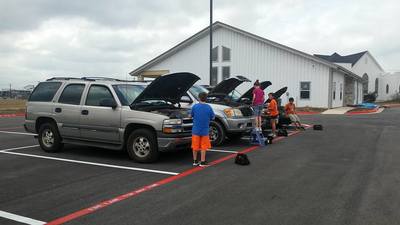

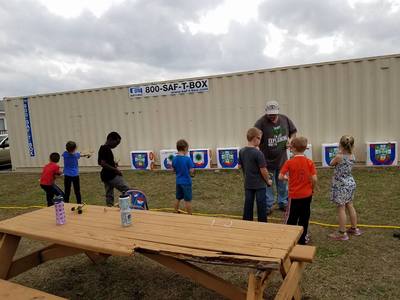
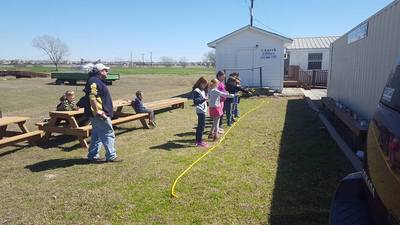
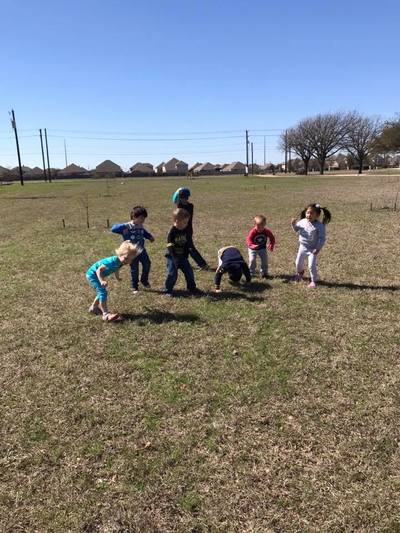
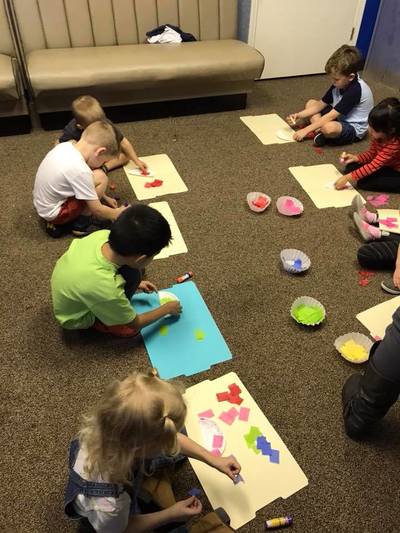
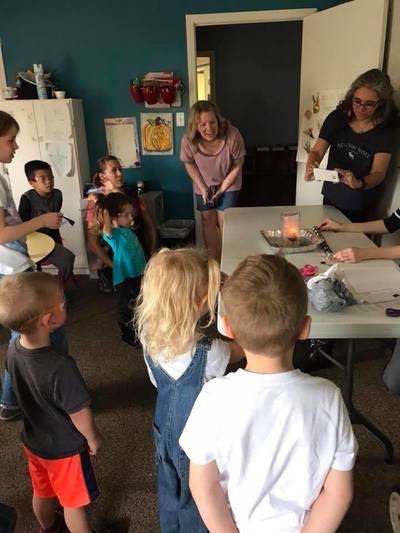



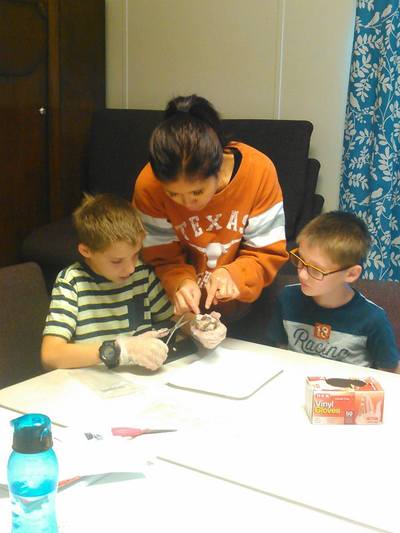
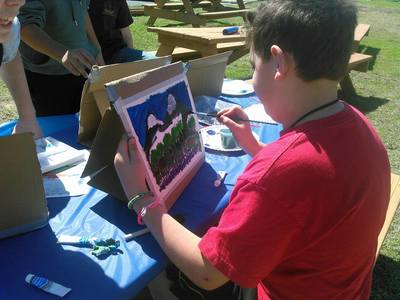

 RSS Feed
RSS Feed
